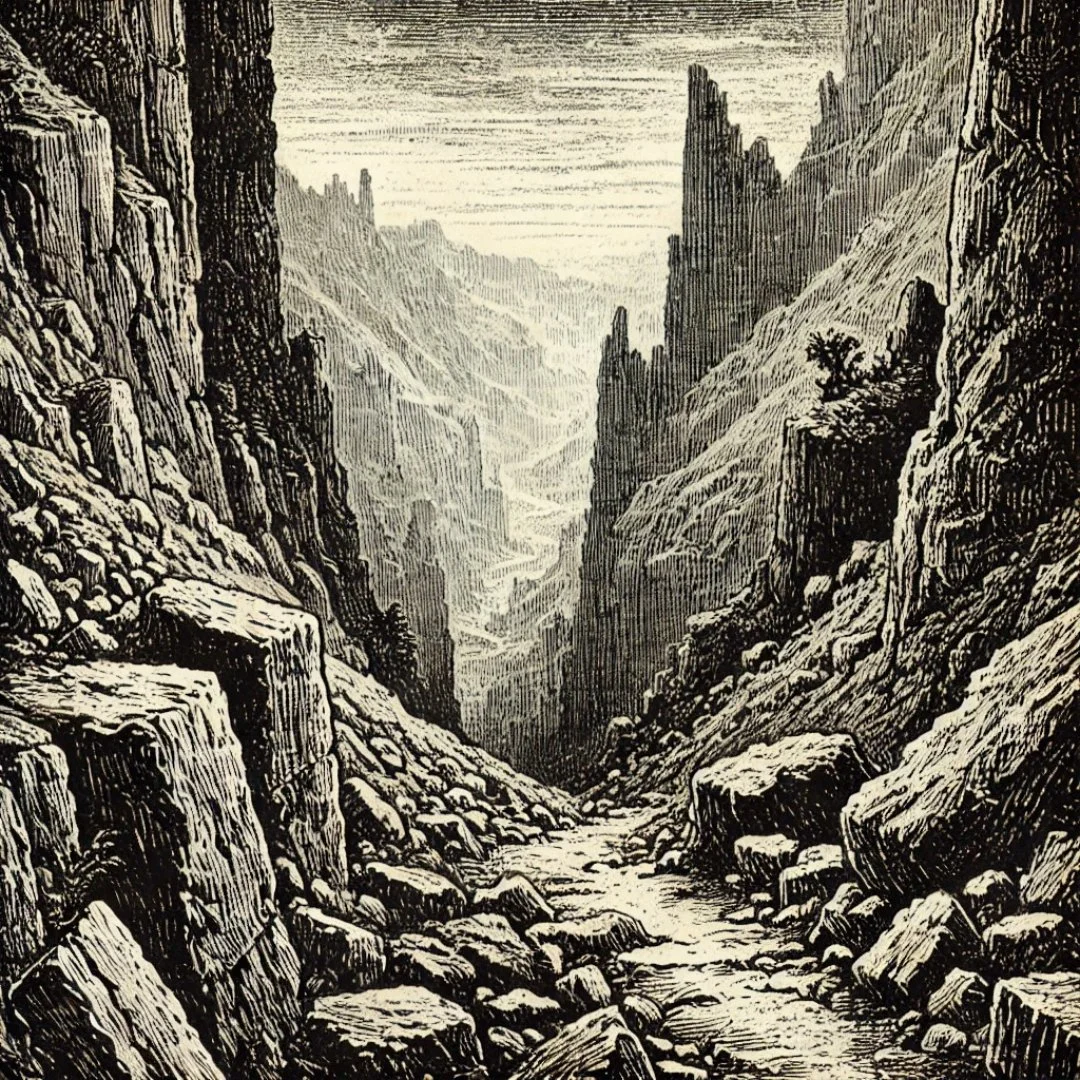The descent
Not saying I’m special but many people don’t take the midlife descent. They find a way to cut a deal and avoid it. Who am I to judge? Maybe they have to, and karmic calculus allows it. Or by perverse resolve or sheer desperation they slip past. Drink, drugs, work, religion, religious gym-going, a performative challenge.
The world is narrowing as it passes through the eye of profound transformation. There is little room for avoidance. This is neither pronouncement nor metaphor. It’s a statement of fact—metaphysical if not physical.
Like all things worthwhile in life, the descent is a paradox. It one level it is profoundly easy. We don’t have to do climb a mountain or enter the jungle to find it. It finds us. At another level, it is profoundly difficult. The skill and will one has put into avoiding it—into deceiving oneself—is proportional to the difficulty of reconciliation. Truly, we cannot avoid consequence or cheat death.
And at another level again—perhaps—it is profoundly easy. Profoundly difficult feelings arrive, like demons from the depths, and there is nothing to do other than allow, accept and embrace them, as Richard Rudd, founder of the Gene Keys so neatly puts it.
But demons, like dragons, like archetypes, are not human. They are primordial forces. They have as much care and compassion for our fragile egos as a train does for an errant mouse. They are not us but they are of us. Or rather, it is the other way around.
We are a fragment, a shard of light, a candle flame, balanced or imbalanced as the case may be, at the apex of primordial forces. Civilisation, culture, society, technology, convenience—to name a few hard fought human contrivances—buffer us from the brutal reality of the human condition.
And it is precisely those buffering contrivances that crumble in times of world transformation.
We modern folk do not have to survive in the desert, the jungle or the cold mountain with nothing but courage and wits. We do not have to make fire with our bare hands. We have been buffered by convenience—mostly at the expense of others. Other classes, demographics, nations.
Again, this is not a judgment. It is a call to adapt to changing times, and a rallying cry to make good of our modern western privilege. We have stolen much fire from the gods—the match, cooker, petrol engine, washing machine, television, computer, internet, AI—now we must wield it responsibly, with wisdom, with loving care for our planet and everyone in these times of profound, terrifying, tragic, magical and magnificent transformation.
This is the call to sovereignty. If that sounds grandiose, remember, it’s primarily a call to descend, to humility, to sort ones shit out like never before and never look back. This is the call to roll back the stone of who we thought we were, and let the terrifying light of the Sixth Sun into the depths of our cave.
Only then can we rise.
Renewed.
Together.

